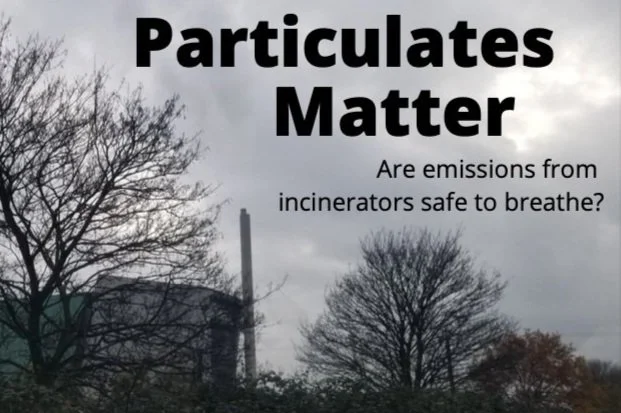
Previous Projects
Our impact so far
Improving Home Energy Efficiency in the UK: The Domestic Premises Bill (2019-2022)
Reducing energy use in our homes is a key step in the fight against climate change whilst creating healthy, warm and affordable homes to live in – something that is not possible for those living in fuel poverty or cold and damp homes.
In partnership with the Sustainable Energy Association, we researched and promoted the need to improve home energy efficiency in the UK. This informed the campaign for the Domestic Premises (Minimum Energy Performance) Bill, first introduced in Parliament by Lord Foster of Bath in January 2020.
In 2020, more than 12 million UK homes fell behind Energy Performance Certificate (EPC) Band C, meaning occupants spending more on their energy bills and higher greenhouse gas emissions than necessary. The Domestic Premises Bill proposed that the government be compelled to develop a more detailed plan of action to bring all fuel-poor homes to EPC Band C by 2030, and all those not classified as fuel-poor by 2035. It also required the Energy Minister to maximise the adoption of existing, new and innovative technologies and to consider how best they could be utilised to realise the Bill’s aims.
Holding the government to account on the health dangers posed by waste incineration (2018-2019)
In 2018, as part of a campaign led by UKWIN - the United Kingdom Without Incineration Network - the Trust convened the Particulate Research Group (PRG), tasked with highlighting misleading statements made by the government about the health dangers posed by ultra-fine particles emitted by waste incinerators.
David Drew, then MP for Stroud and chair of the PRG, asked government officials almost 70 Parliamentary Questions about the particulate matter emitted by municipal waste incinerators. Their answers indicated that the government was issuing false information about levels of emissions, withholding important cautions from Parliament and did not themselves have adequate information on the issue.
We compiled this evidence into a ground-breaking report and highlighted the danger being posed to the public. In response, the government made it compulsory for municipal waste incinerators to report on the ultra-fine particles they emit. This enables the Environment Agency to better monitor site-specific pollution, a fundamental part of protecting communities surrounding incineration sites.
Promoting solutions to climate change without nuclear power (2005-2015)
We spearheaded the campaign, ‘No Need for Nuclear’, to demonstrate that decarbonising the UK’s energy sector could be done without domestic nuclear power.
Our report, ‘A Corruption of Governance’ published in 2012, outlined how officials had distorted the government’s own evidence on the necessity of nuclear power and misled MPs over the need to build a new fleet of nuclear power stations.
We concluded that the government’s assertation that nuclear power was the only way to “keep the lights switched on” was, in fact, not true. We published research which set out renewable technology alternatives that are both more affordable and more efficient.
The campaign was successful in cutting through the government’s narrative and educating policymakers and the public on better energy generation alternatives.
Stopping the repeal of the Home Energy Conservation Act (2012)
The Home Energy Conservative Act 1995 (HECA) requires all 326 local authorities in England to submit reports to the government on what is being done to improve the energy efficiency of all residential accommodation in their area. This information is then utilised by the Department for Business, Energy and Industrial Strategy to monitor the delivery of energy efficiency policy and to inform the development of new policy.
Local authorities are required to periodically publish these reports, providing an important mechanism for the public to hold local authorities to account on their plans to reduce local emissions and protect resident from fuel poverty.
However, in 2012 the government planned to repeal the Act. In response, we presented research to the government and policymakers which highlighted the constructive role that HECA plays in developing the energy efficiency of housing in England. The Minister agreed and the Act remains today.
Empowering local people to protect their community (2002-2010)
From 2002 to 2010, our Local Works project led the promotion of research into ‘Ghost Town Britain’ – the decline of the nation’s communities and the knock-on detrimental social, environmental and democratic impacts.
Initially working together with the New Economics Foundation, we promoted a bottom-up approach and called for legislation for a process whereby local people, community groups and councils could drive the actions central government to create sustainable, thriving local communities.
Specifically, this involved calling for the Sustainable Communities Act to be passed by Parliament, which happened in 2007, and an extension to that Act which ensured Parish Councils be included, which happened in 2010.
The Act has set up an unprecedented process that gives people, together with their local councils, the right to submit proposals to government for action that would help improve their local community. It is unprecedented because the government must reach agreement with a panel at the Local Government Association regarding what action will be taken on each proposal, meaning it goes far beyond a consultation process.
Our Secretary, Ron Bailey, was the Campaign Organiser on this project and of the more than twenty pieces of UK Parliamentary legislation that he has successfully run projects for, he regards this as his greatest achievement.





